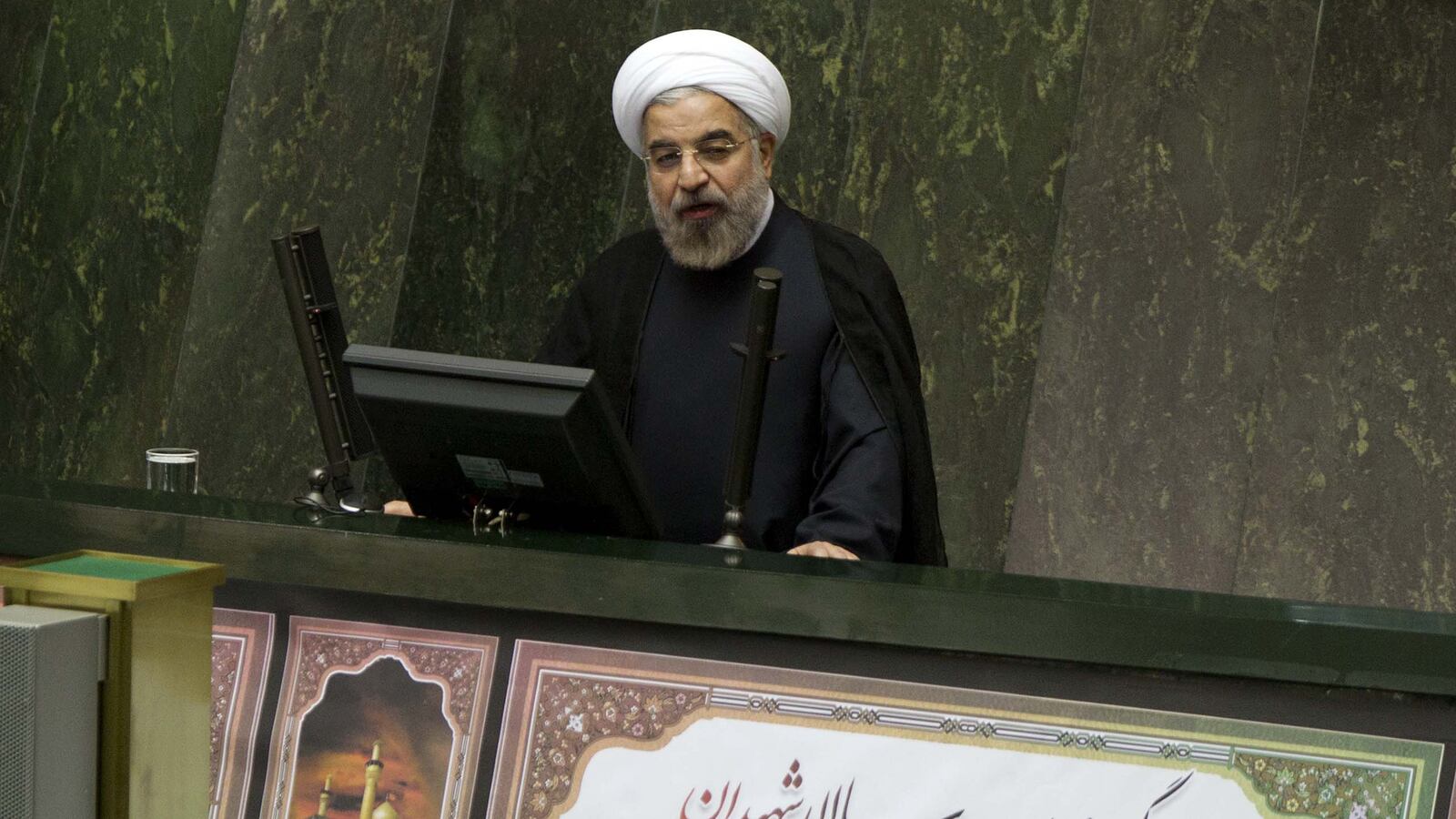In 2006 I wrote in Foreign Policy that Iran was protected by an oil shield that allowed it to defy Europe and the United States while it pursued an aggressive uranium enrichment program, laying the foundation for potential nuclear weapons production.
Today that shield is gone, which is why the West has been able to exert such pressure on Tehran and may yet get a deal to neuter its nukes.

What happened? Oil prices soared anyway, largely because of Asian demand. They hit $147 in July 2008. Then the global economy started to collapse, threatening worldwide recession. But after the painful shocks of 2008, the world got used to sky-high oil prices and eventually absorbed the impact. The Saudis increased their production. The Iraqis came online with theirs. And perhaps most importantly, the domestic United States energy industry went into high gear, largely through the use of fracking technology. This year the United States, by far the world’s biggest consumer of energy, will surpass Saudi Arabia as the world’s biggest producer of hydrocarbons.
Thus, where once Iran threatened to take large quantities of oil off the market to punish the West, today the West is willing to impose sanctions that take huge quantities of Iranian oil off the market to punish Tehran.
In the Foreign Policy essay published in April 2006, I argued that the West was hesitant to take stronger action on Iran. It knew China and Russia, with major economic ties to Tehran, would be hard to get on board for any United Nations resolution. But even more importantly, the West knew that “any misstep in the campaign to deter Iran from developing nuclear technology … could lead to an explosion in the cost of oil.”
The article goes on:
The Iranians know that, of course, and as soon as President Mahmoud Ahmadinejad took office in August, the regime began performing as if a higher law -- supply and demand -- would protect it no matter how much it provoked the international community. As Iran's delegate to the IAEA, Ali Asghar Soltanieh, said bluntly in March, Tehran estimates that "the United States has the power to cause harm and pain, but the United States is also susceptible to harm and pain. So if that is the path that the U.S. wishes to choose, let the ball roll."
The basic arithmetic is simple. There is just barely enough oil in today's market to meet the global demand for about 85 million barrels a day. With almost all oil producers pumping every drop they can get out of the ground or from under the sea, a margin of roughly 1.5 million barrels a day is left over. Iran exports about 2.7 million barrels a day. If an international embargo, a military attack, or a political decision in Tehran took that Iranian oil off the market, prices could well soar from the current price of around $60 a barrel to $90 a barrel or higher. Adjusted for inflation, that would equal or surpass the oil shocks of 1973 and 1979. Painful indeed….
Painful then.
But since the beginning of 2012, U.S. and European sanctions have cut Iran's oil exports from about 2.5 million barrels a day to about 1 million barrels per day, and moves are afoot in Congress to bring that figure down to 500,000 barrels, or, perhaps, zero. The current sanctions have led to soaring inflation and shortages in Iran, crippling the economy and undermining the credibility of the government.
No wonder the Iranians are ready, now, to negotiate seriously. They used the oil shield to get themselves to this point—theoretically months or even weeks —away from the ability to produce enough weapons-grade uranium for a bomb (which they say they don’t want). And now that the oil shield is gone and sanctions have been imposed, they are ready to talk seriously about allaying Western fears.
That is why, despite French posturing, the negotiations over Iran’s nuclear program will go on, and, as Secretary of State John Kerry suggests, may yet succeed.
As of this morning Brent Crude is at $105.85 a barrel (down, in fact). Global energy supplies exceed global demand, and the international markets aren’t batting an eye.
But here’s a cautionary thought. As the Iranian regime of Ayatollah Ali Khamenei and President Hassan Rouhani feels increasingly vulnerable without the economic shield provided by the oil market, it may feel it needs, more than ever, the nuclear shield provided by atomic weapons.
The West is in an unprecedented position of strength right now. But it could be making a huge mistake if it overplays its hand.






